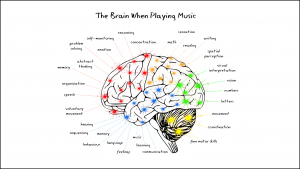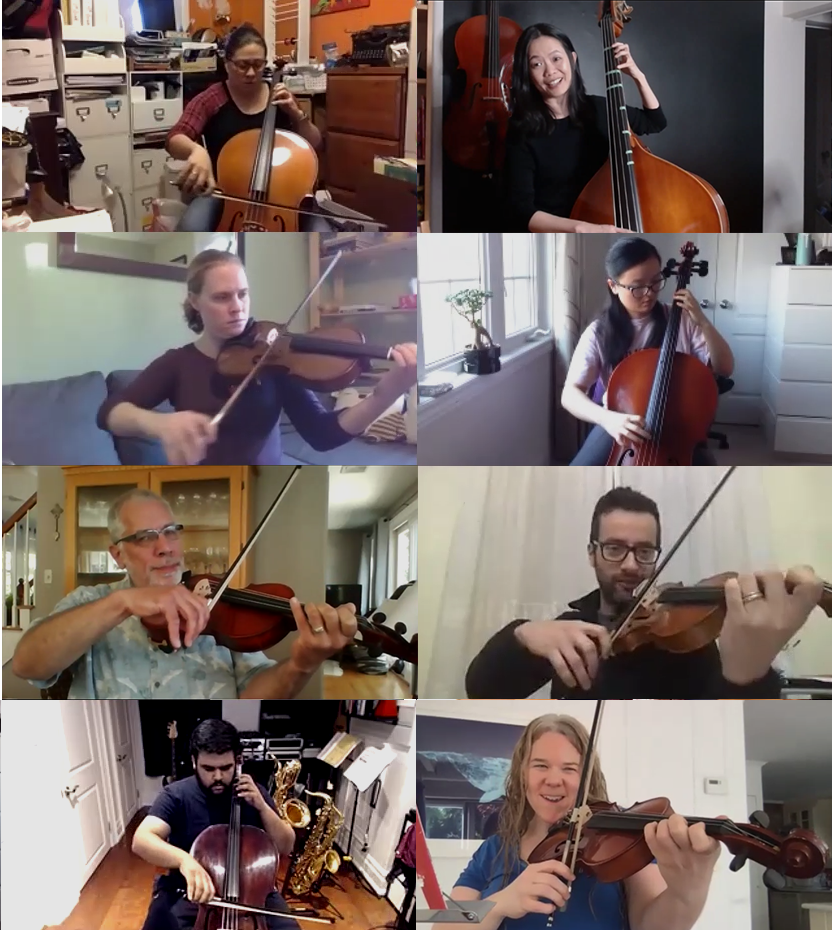Will Music Programmes Survive Quarantine?
As we hear of school boards struggling with limited funds, I know many teachers are worried about whether or not their instrumental music programs are going to survive this era of quarantine. Unfortunately, I have heard a few stories of short-sighted school boards cutting programs. Fortunately though, the vast majority of programs seem to be safe for now.
But as we head into this new era of financial uncertainty, we need to take a good, hard look at our arguments for keeping music programs running. Are our arguments strong enough to help them survive?
If you search the internet for the benefits of music education, the evidence and science abound. As music teachers yourselves, I don’t really need to go into them because this is not another one of those articles. However, there is one weakness in all of these articles that tout the benefit of music education….
What students learn in music are not benefits!
So, you are probably wondering, what’s up with the title? Well, changing how we speak can dramatically change people’s perceptions; and I believe we need to change how we talk about music programs.
The problem is, and it is subtle but powerful, when we call something a benefit, it becomes labeled as something good — but optional. That is why, even though you can list as many great things about music education as you like, calling them benefits always leaves decision-makers a way out. “Yes, we know music has lots of benefits, but it’s not an essential subject, so we have to cut it out.”
Music provides students with essential skills, not benefits.
Interestingly, learning math, language and the sciences has many ‘benefits’ too, but we never talk about them that way. This knowledge is always referred to as skills and these skills are always assumed to be essential. So, the first thing we should do is talk about the skills students learn in music as just that – skills, and drop the word benefits from our vocabulary. This simple change will go a long way towards giving music education much more weight.
Next, as music teachers we know that the skills learned in music are essential to a student’s education too and we need to convey that. However, we really haven’t found a way to articulate this clearly yet, even to ourselves. How can we communicate something that is so elusive?
We know music is essential, but why?
I wrote a post, What Music Students Learn in Just Four Months, a while back describing an activity I do to help my students become aware of everything they are learning in music. In it I wrote:
Music education is a necessity.
Teaching and learning music involves an ecosystem of skills in which every part and contribution is necessary for a successful outcome. As much as our society idolizes subjects like math, science and language because of their obvious direct applications to material benefits, music involves much, much more than just the math and language centres of the brain. When you recognize this, one must ask, how is it that music is deemed a frill rather than a necessity?
This was the beginning of an idea that I want to explore further here.
How our brains are designed to work.
What music makes your brain do are not benefits – it’s how our brains are supposed to work. Playing music is the only activity that activates every part of the brain all at once, especially for string players. It stands to reason that something this powerful should actually be an essential part of every student’s education.
There is a reason why studying music enhances learning. And there is a reason why Einstein played the violin and listened to Mozart. He was accessing all the incredible neural activity that playing and listening to music activates. In fact, his theory of relativity was conceived while intermittently playing the piano.
Science says that we use only a minuscule amount of the potential of our brain in the first place. So, to deny any student access to the chance to play music is in essence to deny them the opportunity to create millions or billions more connections in their brain – or even to deny them the chance to become Einsteins.
It’s not just about the brain.
And of course, we know it is not just the skills of playing music students are practicing. The skills of communication, learning to work with others, developing relationships, taking risks, perseverance, and more – these are not benefits either. They are life skills that students are supposed to learn and we are supposed to teach them. And music class makes students practice all these skills — all the time. No other subject does this as well as music. Doesn’t that make music the superior subject in a person’s education?
Every student should have the same opportunity to develop these socio-emotional skills – skills that make them resilient, get them through the tough times, and are key to their emotional health.
We shouldn’t be taking essential skills away from a child’s education.
When we deprive our students of the skills they develop when they learn to play music, we are taking away something that should be an essential part of their education. Notice I said we are taking something away from them. That is the opposite of saying that music education is a benefit, which again is optional.
So let’s stop talking about music as a benefit, and start talking about the essential skills students learn from music that they should not be deprived of.
Music is superior at developing the brain.
When faced with cuts to your music program, show decision-makers this article and the very popular video below, and ask them why students are being deprived of the opportunity to create billions of new connections in their brain and becoming smarter. Ask them why they would even consider taking away the one subject that is not only superior at developing the brain but also at developing students’ socio-emotional skills – something they need now more than ever. In these uncertain times, music is not an optional frill – it is a necessity that will hold our society together.
Stay tuned for my next post on Music Education as an Equity Issue.
Feel free to share your thoughts below!




Leave a Reply